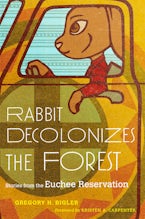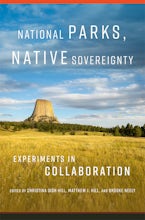- Home
- American Popular Music Series
- music
- history
- Mapping Woody Guthrie
Mapping Woody Guthrie
by Will Kaufman
Published by: University of Oklahoma Press
Imprint: University of Oklahoma Press
176 Pages | 6 x 9 | 10 b&w illus., 2 maps
$19.95
$26.95
$24.95
“I ain’t got no home, I’m just a-roamin’ round,” Woody Guthrie lamented in one of his most popular songs. A native of Oklahoma, he was still in his teens when he moved to Pampa, Texas, where he experienced the dust storms that would play such a crucial role in forming his identity and shaping his work. He later joined thousands of Americans who headed to California to escape the devastation of the Dust Bowl. There he entered the West Coast stronghold of the Popular Front, whose leftward influence on his thinking would continue after his move in 1940 to New York, where the American folk music renaissance began when Guthrie encountered Pete Seeger and Lead Belly.
Guthrie kept moving throughout his life, making friends, soaking up influences, and writing about his experiences. Along the way, he produced more than 3,000 songs, as well as fiction, journalism, poetry, and visual art, that gave voice to the distressed and dispossessed. In this insightful book, Will Kaufman examines the artist’s career through a unique perspective: the role of time and place in Guthrie’s artistic evolution.
Guthrie disdained boundaries—whether of geography, class, race, or religion. As he once claimed in his inimitable style, “There ain’t no such thing as east west north or south.” Nevertheless, places were critical to Guthrie’s life, thought, and creativity. He referred to himself as a “compass-pointer man,” and after his sojourn in California, he headed up to the Pacific Northwest, on to New York, and crossed the Atlantic as a merchant marine.
Before his death from Huntington’s disease in 1967, Guthrie had one more important trip to take: to the Florida swamplands of Beluthahatchee, in the heart of the South. There he produced some of his most trenchant criticisms of Jim Crow racism—a portion of his work that scholars have tended to overlook.
To map Guthrie’s movements across space and time, the author draws not only on the artist’s considerable recorded and published output but on a wealth of unpublished sources—including letters, essays, song lyrics, and notebooks—housed in the Woody Guthrie Archives in Tulsa, Oklahoma. This trove of primary documents deepens Kaufman’s intriguing portrait of a unique American artist.
Will Kaufman is Professor of American Literature and Culture at the University of Central Lancashire, England, and author of American Culture in the 1970s; Woody Guthrie, American Radical; and Woody Guthrie’s Modern World Blues.
“Mapping Woody’s travels as a way of revealing the impact of time and place on his work is a journey few are qualified to undertake. The reader is in good hands as Will Kaufman guides us along Woody’s road and his path across the seas to explore the places and spaces that inspired America’s greatest balladeer.”—Deana McCloud, Executive Director, Woody Guthrie Center
“We always knew Woody was a ‘travelin’ man,’ but Will Kaufman shows us so much more. Movement across space and through time enriched Guthrie by providing him—and by extension, us—the multiple vantage points through which to view and understand America at mid-twentieth century. Our preeminent Woody Guthrie scholar delivers yet again.”—Brian Hosmer, H. G. Barnard Chair of Western American History, University of Tulsa
“The work gives new insight into the many varied areas of the nation and the globe that impacted Guthrie’s music. Kaufman’s perspective creates a valuable way to organize Guthrie’s catalog and, moreover, provides new insight into the interactions between songwriting and place to reveal how artists translate the meaning of locations into music. “— Chronicles of Oklahoma












